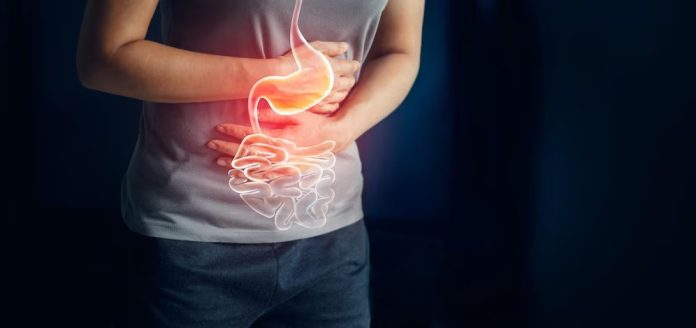Your gut bacteria do more than digest your food – they also play an integral part in weight control and workout stamina. Steps taken to enhance gut health and metabolism can have a dramatic impact on both body and mind while helping you reach weight-management goals. Gut bacteria play an essential role in our overall health, so when they’re out of balance, it can have an adverse impact.
Speak to a well-experienced Gut health and weight loss expert about which dietary changes would best serve you; they can assist with understanding which factors contribute to gut health issues and imbalance – including diet, stress levels, medication usage, or genetics. They can also assist in finding supplements that support this effort and develop holistic plans to heal or rebalance your gut bacteria.
Gut Microbiome and Weight Loss
Studies suggest that having a diverse gut can lower the risk of diseases like inflammatory bowel disease and psoriatic arthritis. Moreover, the immune system is closely connected to the gut microbiome for weight loss; diminished levels of beneficial bacteria may lead to conditions such as autoimmunity (e.g., rheumatoid arthritis or Crohn’s disease) or skin disorders like psoriasis.
Researchers have developed methods to analyze the correlation between the gut microbiome and weight loss and its effect on health. One such technique, guild-based analysis, clusters correlated bacterial genera into groups known as guilds while simultaneously reducing data dimensionality and exploring host phenotype relationships. Book your appointment with one of the best gut health doctors now to learn more about gut health and metabolism!
Dietary Interventions
Diet and lifestyle changes have demonstrated substantial impacts on gut microbiome composition. These include reducing the intake of sugary and processed foods, staying adequately hydrated, avoiding unnecessary antibiotic use, incorporating regular physical activity, and managing stress while prioritizing sufficient sleep.
Fibers feed the good bacteria living in your digestive tract, which in turn help train and modulate your immune system, support strong gut health function, and communicate bi-directionally with the brain via the gut-brain axis that influences digestive function, mood, and behavior – symptoms like constipation, bloating, gas or weight changes could indicate that something is amiss within your gut microbiome.
Research suggests that switching to a diet free from meat and dairy may improve gut health and metabolism. One potential explanation may lie within its high concentrations of prebiotic fiber found in plant foods; whole grains, fruit, vegetables, and unflavoured milk all contain prebiotic fiber that may provide benefits.
Eat Unprocessed & Ultra-processed Foods
News reports and social media are full of dire warnings that our diet of processed food is killing us. While this may sound extreme, research tying this type of eating habit to various diseases as well as early deaths has increased significantly. Factory foods are industrial creations composed of ingredients rarely found in home kitchens, including bulking agents, hydrolyzed protein isolates, color stabilizers, and humectants. Their labels usually list many ingredients and tend to contain high concentrations of sugars, trans and saturated fats, and salt content.
Packaging cake, cookies, chips, soda, bottled salad dressings, and frozen meals offer convenient yet unwholesome foods that are low-cost, palatable, yet not nutritional. One theory suggests they feed harmful bacteria, leading to gut inflammation and resulting in conditions like IBS. By including more hydrating foods like cucumbers (96 percent water) in your diet, cucumbers can help foster a healthy gut microbiome. When it comes to the gut microbiome and weight loss, eating prebiotic and probiotic food will boost the population and diversity of good bacteria in your digestive tract; conversely, consuming too much sugar or artificial sweeteners may decrease beneficial bacteria while increasing the risk of metabolic disorders.
Eat Fermented Foods
Consuming naturally fermented foods is one of the best ways to get probiotics. These foods contain beneficial bacteria and yeast strains that work to counteract bad ones in your digestive system. Probiotic-rich food sources have been shown to promote microbiome for weight loss in ways researchers are just starting to explore.
Diets high in fermented soybeans have been shown to boost gut health for weight loss by increasing beneficial bacteria populations and decreasing inflammation-associated molecular markers. If you are taking blood thinners, exercise caution before adding this food to your diet, as its vitamin K2 content may interact negatively with certain drugs.
Exercise
Exercise regularly to increase gut motility, enhance digestion, manage stress levels, prioritize quality sleep, and avoid artificial sweeteners and processed foods, which may alter gut microbiome composition. Research supports the idea that regular exercise helps foster a healthy gut microbiome.
One study assigned sedentary people to six weeks of progressive physical exercise that progressed from 30 minutes of brisk walking to an hour of intense cycling three times weekly without changing diet or altering participants’ gut microbes significantly. They noticed significant shifts, yet were back to their original microbe levels within 48 hours after ending their workouts due to eating a nutritious diet with lots of whole grain choices and high fiber options such as beans. This suggests dietary change promotes the growth of beneficial bacteria over time.
Gut Health and Weight Management
Maintaining a healthy gut is crucial for proper digestion, nutrient absorption, immune function, and mental well-being. Diet and exercise not only contribute to maintaining an ideal body weight and improving workout efficiency but also influence the composition of bacteria in our gut microbiome.
As you progress into phase two of the program, you must continue eating nourishing foods while limiting those known to damage your gut. At this stage, reintroduce foods from your “Gut-Friendly” list, which were eliminated in phase one, such as dairy products, free-range eggs, and legumes. Kombucha or fermented vegetables contain prebiotics-rich foods that promote gut health for weight loss – or take probiotic supplements for extra support. Introducing aerobic activity three or more days each week, such as running or cycling, will stimulate the production of bacteria species that promote gut health – helping support weight loss!
Your gut bacteria are integral to how your body digests food, regulates appetite, and satisfies you after meals. Some beneficial bacteria break down fiber-rich foods into metabolites that stimulate vagus nerve signals to suppress appetite; other bacteria produce neurotransmitters like GABA, dopamine, norepinephrine, and serotonin that communicate between the brain and the gut to affect hunger, mood, and energy levels.
Gut flora composition can differ considerably depending on our dietary choices and living environment. People who consume excessive fast food typically have less variety of bacteria living in their gut, while lean individuals typically possess more beneficial bacteria species. Furthermore, different age and gender groups often harbor distinct strains of gut bacteria.
Conclusion
Though it’s possible to restore and diversify your gut microbiome by changing your diet, the optimal approach involves eating a wide range of high-fiber foods, supplementing with probiotics, managing stress effectively, limiting processed sugar consumption, and including more fruits and vegetables, lean meats, beans lentils tofu whole eggs fatty fish olive oil into your routine if possible. If fiber intake remains an issue in your daily life, consider adding daily fiber supplements into your routine as an additional solution.
To learn more about the gut microbiome for weight loss and how to get the best out of your lifestyle, visit the leading medical center for a gut checkup now!














